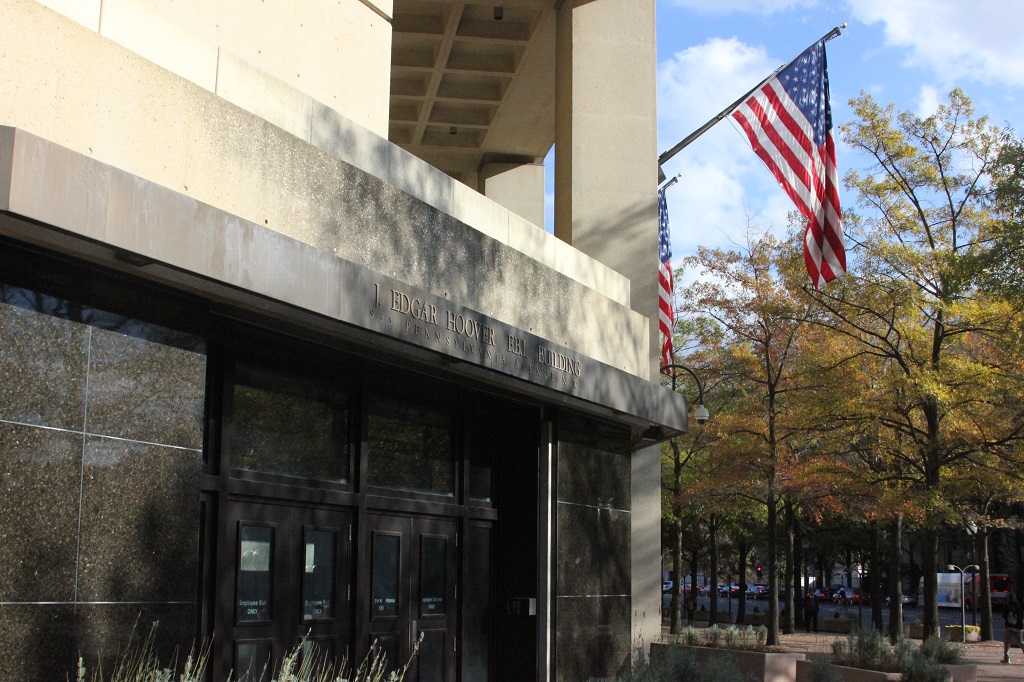Taking the Pulse of the FBI One Year Into Trump’s Tenure
Last year, in the wake of President Trump’s controversial decision to fire FBI director James Comey, several media organizations—including Lawfare—took a special interest in the “climate survey” that the bureau administers to its personnel each spring. In justifying his decision to fire Comey, President Trump had claimed that the FBI was “in turmoil” and that he “just want[ed] somebody that’s competent” to head the organization.

Last year, in the wake of President Trump’s controversial decision to fire FBI director James Comey, several media organizations—including Lawfare—took a special interest in the “climate survey” that the bureau administers to its personnel each spring. In justifying his decision to fire Comey, President Trump had claimed that the FBI was “in turmoil” and that he “just want[ed] somebody that’s competent” to head the organization. As the New York Times reported when the FBI released the results under the Freedom of Information Act, however, the climate survey—which asks FBI personnel about their views of their leadership and the organization as a whole—contradicted this account: “While Mr. Comey’s marks fell slightly in some categories over his three-year tenure, his scores were consistently high in each year and in nearly every area. Nationwide, agents gave higher marks to Mr. Comey’s leadership team in 2017 than they gave to [Robert] Mueller, who preceded him as director and whose tenure is widely respected.”
Far from the “turmoil” that President Trump had described, the climate survey showed an FBI that was largely happy with the leadership it had received under Comey, in spite of the incredibly difficult conditions in which the FBI was operating.
But what a difference a year can make. Within days of Comey’s removal, there were revelations that President Trump may have sought to interfere with the FBI’s investigation into his campaign’s ties with Russia. President Trump and his supporters subjected Comey’s direct successor, Deputy Director Andrew McCabe, to withering and personal attacks, ultimately resulting in him being fired just days prior to his retirement. Fearful of what the independent investigation now being led by Mueller might uncover, they have also come to routinely assail the FBI’s integrity, seizing on any pretext to accuse Comey, McCabe, and other FBI personnel of skewing investigative results, abusing surveillance authorities, or otherwise acting with animus towards the Trump administration. And President Trump’s chosen FBI director, Christopher Wray, who was confirmed in August 2017, has done surprisingly little to publicly defend the organization he now leads.
One can imagine how these developments might be affecting morale among the rank-and-file members of the FBI. But fortunately, we don’t have to imagine—we have the Freedom of Information Act.
According to the FBI’s national press office, the most recent FBI climate survey was administered in February and March of this year. Thus, it should be well-situated to capture internal reactions to the tumultuous events of the past year. Further, comparing these results to the prior survey results that the FBI has made available online should show how these developments have impacted FBI morale relative to previous years.
So we submitted a new FOIA request seeking the results of this year’s climate survey. To help expedite a response, we tailored our request as narrowly as possible to the types of documents that the FBI has disclosed in the past. As always, we’ll share and analyze the results of this request here on Lawfare once we have them. In the meantime, a copy of our request is below.




.png?sfvrsn=48e6afb0_5)

